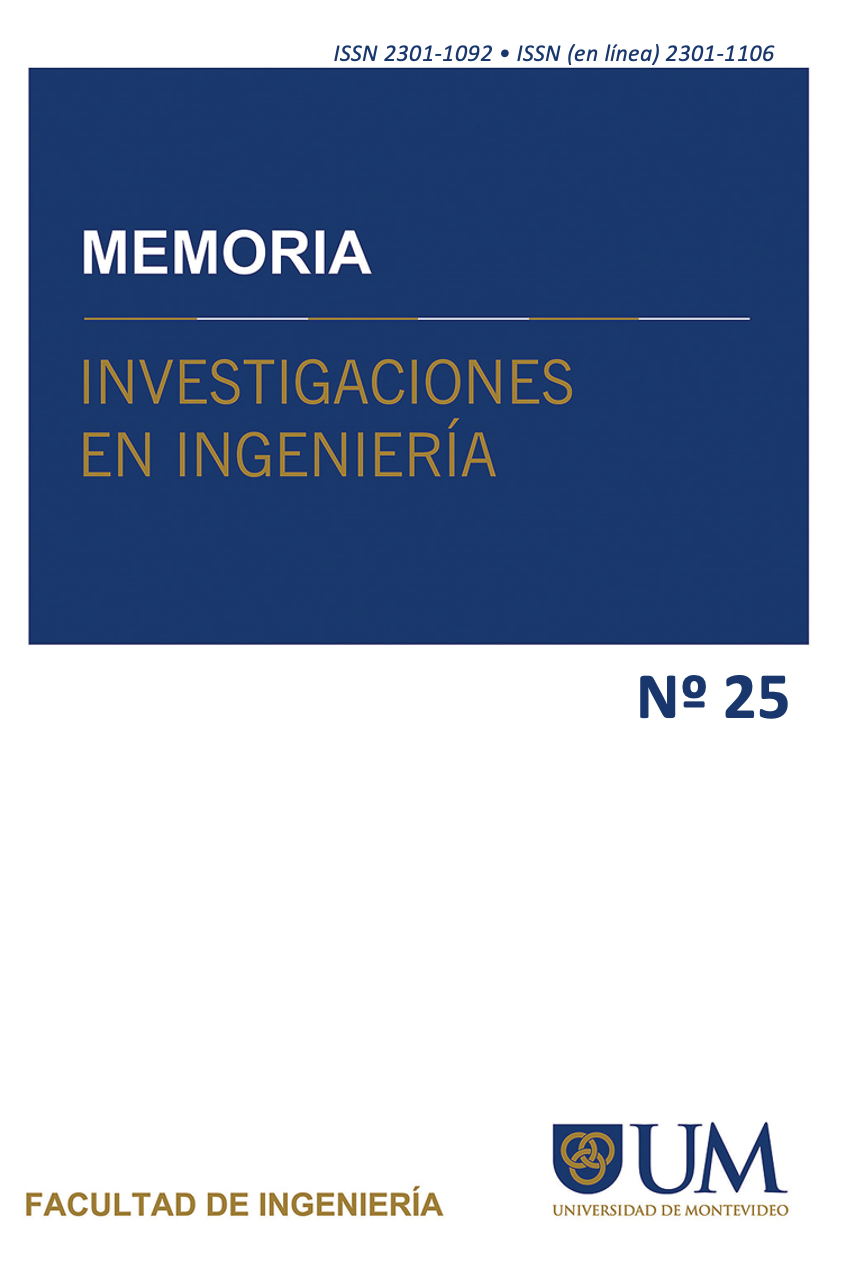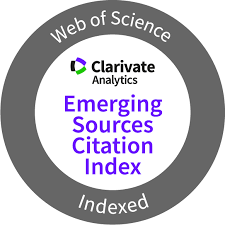Relational capital of organizations
evidence from mexican SMEs
DOI:
https://doi.org/10.36561/ING.25.12Keywords:
Intellectual capital, Knowledge management, Relational capital, Efficacy, Management modelAbstract
Relational capital constitutes one of the components of the intellectual capital of any organization, which reflects the value provided by the relationships that it establishes with the agents in the environment with which it interacts during the development of its activity. Because organizations maintain a wide range of relationships of different nature, relational capital has a direct impact on efficacy, understood as the degree to which objectives and goals are achieved. However, the review of the most relevant theory that has been generated in the field of knowledge management to date shows that interest has been oriented mainly towards human and structural capital, the other two components of intellectual capital, and there is a lack of methodological tools for the effective management of relational capital. For this reason, this paper aims to reflect on the importance of relational capital and its relationship with efficacy, as well as to propose a comprehensive model for its management, which involves different organizational variables, and to present its validation through a factor analysis in the context of Mexican small and medium-sized enterprises.
Downloads
References
Roos, J., Roos, G., Dragonetti, N. y Edvinsson, L. (2001). Capital intelectual: el valor intangible de la empresa. Ed. Paidós Ibérica. 189p.
Rastogi, P.; (2000). Knowledge Management and Intellectual Capital: The New Virtuous Reality of Competitiveness, Human Systems Management, 19(1), 39-48. http://doi.org/10.3233/HSM-2000-19105
Nonaka, I. (1991) The Knowledge Creating Company. Harvard Business Review, 69, 96-104.
https://hbr.org/2007/07/the-knowledge-creating-company
Ricardo, M. & Pérez, M. (2019). Reflexiones sobre la gestión del conocimiento en la Organización de Naciones Unidas. Dilemas Contemporáneos: Educación, Política y Valores, 7(1), 85. https://doi.org/10.46377/dilemas.v28i1.1603
Sveiby, K. E. (2000). Capital intelectual. La nueva riqueza de las empresas. Cómo medir y gestionar los activos intangibles para crear valor. Ed. Gestión 2000. 326p.
Ferrer-Serrano, M., Fuentelsaz, L. & Latorre-Martinez, M.P. (2022). Examining knowledge transfer and networks: an overview of the last twenty years. Journal of Knowledge Management, 26(8), 2007-2037. https://doi.org/10.1108/JKM-04-2021-0265
Garcia-Perez, A., Ghio, A., Occhipinti, Z. & Verona, R. (2020). Knowledge management and intellectual capital in knowledge-based organisations: a review and theoretical perspectives. Journal of Knowledge Management, 24(7), 1719-1754. https://doi.org/10.1108/JKM-12-2019-0703
Jakubik, M. (2023). Evolution of Knowledge Management Towards Wisdom Management. Journal of Information & Knowledge Management. https://doi.org/10.1142/S021964922350051X
Edvinsson, L. & Malone, M. (1997). Intellectual Capital. Harper Business, New York. 240p.
Adler, P. y Kwon, S. (2000). Social capital: The good, the bad, and the ugly. Knowledge and social capital: Foundations and applications, 89-115.
Ordóñez de Pablos, P. (2003). Intellectual capital reporting in Spain: a comparative view. Journal of Intellectual Capital, 4(1), 61-81.
Peces, M. & Trillo, M. (2019). The influence of relational capital and networking on the internationalization of the university spin-off. Intangible Capital, 15(1), 22-37. http://dx.doi.org/10.3926/ic.1186
Johnston, K. & Lane, A. (2018). Building relational capital: The contribution of episodic and relational community engagement. Public Relations Review, 44(5), 633-644. https://doi.org/10.1016/j.pubrev.2018.10.006
Gannon, B. & Roberts, J. (2018). Social capital: exploring the theory and empirical divide. Empirical Economics, 58, 899–919. https://doi.org/10.1007/s00181-018-1556-y
Real Academia Española (s.f.). Eficacia. En Diccionario de la lengua española. (Consultado: 31/8/23).
Caliendo, M., Kritikos, A., Rodríguez, D. & Stier, C. (2023). Self-efficacy and entrepreneurial performance of start-ups. Small Business Economics. https://doi.org/10.1007/s11187-022-00728-0
Rogers, E. & Wright, P. (1998). Measuring organizational performance in strategic human resource management: Problems, prospects and performance information markets. Human Resource Management Review, 8 (3), 311-331.
ISO (2015). Sistemas de gestión de la calidad — Fundamentos y vocabulario, ISO 9000:2015.
Real Academia Española (s.f.). Imagen. En Diccionario de la lengua española. (Consultado: 8/9/23). https://dle.rae.es/imagen
Cohen E. & Martínez R. (2002). Manual de formulación, evaluación y monitoreo de proyectos sociales. http://www.eclac.cl/dds/noticias/paginas/8/15448/Manual_dds_200408.pdf
Mott Glosario (2023). https://glosario.mott.pe/marketing/palabras/alianza-estrategica
Hill, C. & Jones, G. (2009). Administración estratégica (8.ª ed.). México: McGraw- Hill. 798p.
Vallejo, P. (2003). Competencia y Estrategia Empresarial. Pontificia Universidad Javeriana, Bogotá, 148-149.
Moreno, M. J. & Pelayo, Y. (2007). Thalec: modelo para la gestión interna del conocimiento. Capital humano: revista para la integración y desarrollo de los recursos humanos. 20(208), 68-83.
http://www.uhu.es/mjesus.moreno/investigacion/archivos/todo%20rev%20CH%20THALEC.pdf
Schein, E. (1983). The role of the founder in creating organizational culture. Sloan School of Management, MIT.
https://dspace.mit.edu/bitstream/handle/1721.1/2039/SWP-1407-09320305.pdf?sequence=1&isAllowed=y
Kast, F. & Rosenzweig, J. E. (2014). Administración en las organizaciones. 4ta Ed. McGraw-Hill. 754p.
Zeitchik, S. (2012). 10 Ways to Define Leadership. Business News Daily. NJ: Pearson Ed. Inc.
Ricardo, M. & Pérez, M. (2021). Procedimiento de diagnóstico para la implementación de sistemas de gestión del conocimiento. Reflexiones, 100(1). https://doi.org/10.15517/rr.v100i1.40749
Morin, J. & Seurat, R. (1998). Gestión de los recursos tecnológicos. Madrid: Fundación Cotec. 221p.
Margulies, N. & Raia, A. (1978). Conceptual Foundation of Organizational Development. McGraw-Hill, New York, USA. 401p.
Andreu, R., Ricart J. E. y Valor, J. (1991). Estrategia y Sistemas de Información. Mc Graw-Hill, Madrid. 187p.
Encyclopedia Britannica (2023). Database. (Consultado: 8/9/23).























